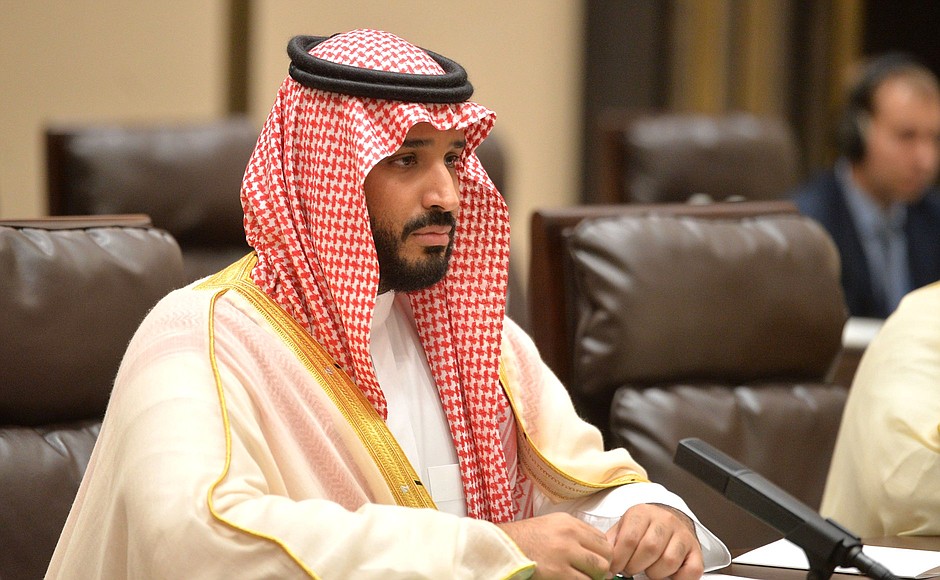All the tears between the United States and Saudi Arabia

According to the Wall Street Journal, relations between the United States and Saudi Arabia have reached "breaking point". Israel fears that Riyadh could get closer to Russia and China, and that Iran could expand into the Middle East. All the details
Israel's ambassador to Washington, Michael Herzog, said recently that it would be "very important" to the Middle East if the United States and Saudi Arabia "fix" their relationship.
THE CRISIS IN RELATIONS BETWEEN THE UNITED STATES AND SAUDI ARABIA
Historically, Riyadh is Washington's partner of choice in the Middle East region, but bilateral relations have become particularly strained under Joe Biden's current administration. Biden's foreign policy, based on the promotion of human rights and democratic values, has in fact come into conflict with the authoritarian practices of Saudi Arabia. In 2019 Biden said he would treat the kingdom as a "pariah"; Things precipitated with the publication of an American intelligence report in which Crown Prince Mohammed bin Salman is directly accused of being the instigator of the murder of journalist Jamal Khashoggi, killed in 2018.
"BREAKING POINT"
According to the Wall Street Journal , relations between the United States and Saudi Arabia have reached "breaking point". And when, after the invasion of Ukraine, the Biden administration asked Riyadh to significantly increase oil production to compensate for the ouster of Russian crude from the market and encourage lower prices, it got a refusal: the Saudis have decided not to deviate much from the agreement reached with the other members of OPEC +, the cartel of oil exporters led by Riyadh and Moscow.
WHAT ISRAEL FEARS
Israel fears that these tensions could induce Riyadh to reorient its foreign policy, traditionally pro-American (although there have certainly been conflicts in the past), and to move closer to Russia and China (the largest buyer of its crude oil).
The result could be an even smaller presence of the United States in the Gulf region, which has long since no longer been at the top of American geopolitical interests; Iran could also take advantage of this to expand its influence and threaten Israeli security. Tel Aviv, on the other hand, would like a normalization of relations with Riyadh and its entry into the Abrahamic agreements, promoted by Washington precisely in an anti-Iranian function.
RELEASE TESTS
To foster détente with Riyadh and address its security concerns, several American officials visited the kingdom. But progress – as the Wall Street Journal reports – has been only modest, partly because the Biden administration has no intention of offering major concessions to the Saudis.
The rapprochement is also opposed, in the United States, by various exponents of the Democratic Party and the Republican Party, who criticize Saudi Arabia for the violations of human rights and for the agreement on the limitation of the oil supply reached with Russia months does.
WHAT SAUDI ARABIA WANTS
Beyond the Khashoggi affair, Saudi Arabia would like from the United States a different approach to Yemen, where the Riyadh-led coalition is at war with the Houthis, an Iranian-backed Shiite armed group that has repeatedly hit targets in Saudi territory. Washington no longer classifies the Houthis as terrorist organizations and is reducing support for Riyadh's military campaign, for example by blocking the sale of precision guided missiles. However, the United States has not stopped the transfer of weapons for defensive purposes: in November it authorized the sale of air-to-air missiles to Saudi Arabia for 650 million dollars.
The withdrawal from Afghanistan has also fueled the belief in Riyadh that the United States is no longer willing to engage militarily in the Middle East.
In addition to support in the war in Yemen and security guarantees from attacks by pro-Iranian organizations, Riyadh would like more economic investments from American companies.
This is a machine translation from Italian language of a post published on Start Magazine at the URL https://www.startmag.it/mondo/stati-uniti-arabia-saudita-crisi/ on Wed, 20 Apr 2022 13:45:18 +0000.
